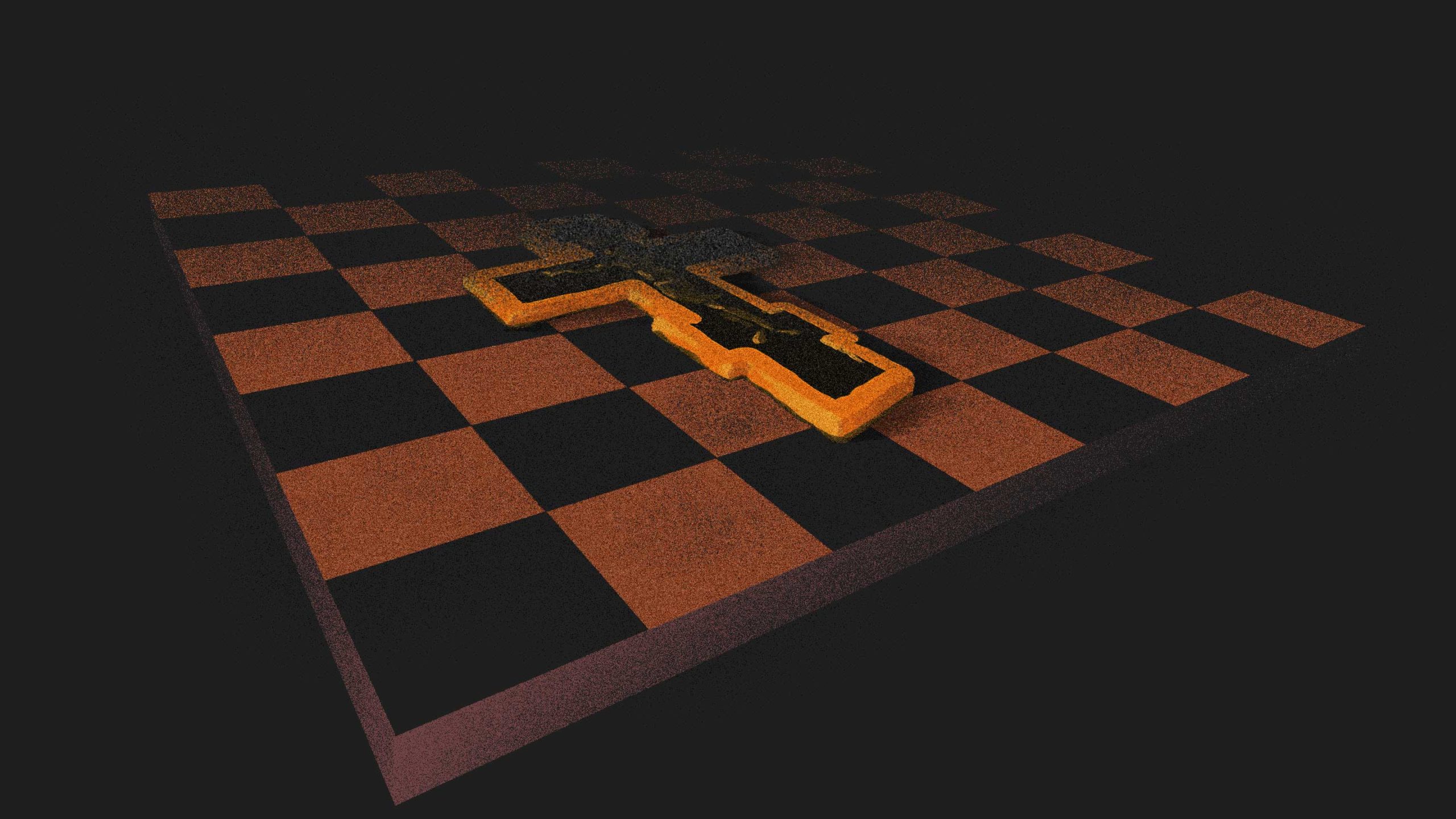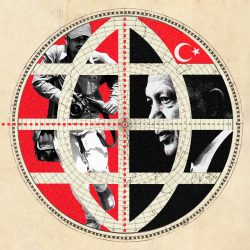
Russian prosecutors struggle to protect bruised religious feelings
On January 22, Russian standup comedian Alexander Dolgopolov received an ominous letter. Saint Petersburg’s HopHead Tap Room had forwarded to him an official request from Russia’s Ministry of Internal Affairs. It demanded “full information” about a performance he had given at the venue in February 2019.
Though the Ministry’s letter gave little away, Dolgopolov was in no doubt as to its seriousness. Fearing the consequences for a routine in which he poked fun at the Orthodox Church, Jesus and the Virgin Mary, he left Russia.
“I knew that if they got hold of me, they would put me in jail,” he told The Independent at the time.
That same day, the Ministry of Internal Affairs press service confirmed his suspicions. An unidentified resident of Orekhovo-Zuyevo — a city 500 miles from the Saint Petersburg venue — had made a complaint, having watched the year-old routine on YouTube. In response, local police had opened an investigation of Dolgopolov under Article 148 of Russia’s criminal code, for “offending the feelings of religious believers”.
According to his lawyer, Leonid Solovyov, Dolgopolov, who has since returned to Russia, will continue to live under the threat of criminal charges for the time being.
“For whatever reason, the investigation hasn’t yet led to formal charges,” said Solovyov, via Facebook Messenger. “However, in theory they could decide to prosecute at any moment in the next 18 months, before the limitation period expires.”
Introduced in 2013, Article 148, the so-called “blasphemy law,” has caused controversy ever since.
Coming in the aftermath of the Pussy Riot case, in which members of the Russian feminist punk collective were arrested for an explicit performance in Moscow’s Cathedral of Christ the Saviour, the broad and vague law, which prohibits “offending the religious feelings of believers” rode a wave of popular outrage. Though Pussy Riot had been prosecuted under pre-existing laws against hooliganism, Article 148 was seen at the time as a way of ensuring that such an incident did not happen again.

However, the Kremlin also had a clear political motive for banning blasphemy. In the wake of huge street protests against rigged elections in 2011 and 2012, the Russian government began a rhetorical pivot towards traditional values, leveraging religious and patriotic sentiment to bolster its popularity.
“Article 148 has always been primarily a political law”, says Alexander Verkhovsky, the head of the SOVA Center, a Moscow think tank focused on the relationship between church and secular society. “It was aimed at consolidating conservative support for the government at a time of crisis.”
Blasphemy legislation, along with bans the adoption of Russian children by foreign citizens and “homosexual propaganda,” can be seen as part of this effort. These new laws also helped boost Russia’s standing within the international religious right. In June 2013, only days before Putin signed Article 148, Larry Jacobs, head of the World Congress of Families, a coalition of anti-abortion and anti-gay hard-liners, said, “The Russians might be the Christian saviors of the world.”
While the blasphemy law has rarely been used, activists like Verkhovsky say it remains a potent symbol for Russia’s religious conservatives.
Pushback against Article 148
In March 2019, it was announced that a draft of the Law on Culture to be debated in the State Duma would exempt “works of culture … from the articles of the Criminal Code concerning offense to the feelings of religious believers,” a change that had long been demanded by prominent figures in the Russian art world.
In short, Article 148 would apply only to the public actions of private citizens. The full freedom to criticize and even ridicule religion would be restored to film, theatre, literature and museums, effectively defanging the blasphemy law.
Though an outcry from the Orthodox hierarchy saw presidential advisor on culture Vladimir Tolstoy quickly and publicly deny that any decision to amend the legislation had been made, it was clear that Article 148 was still politically contentious. Soon afterwards, the draft law was quietly dropped, and Article 148 left in place.
“The law itself is simply too vague”, says Konstantin Dobrynin, a former Russian senator and lawyer who now lives in London. “No one has any idea what “offending feelings” means in a legal sense. Theoretically, it could cover almost anything.”

Accordingly, the state has largely declined to enforce the legislation.
Since its introduction in 2013, there have been only 19 prosecutions under the law, most of which were prompted by social media comments, memes or videos posted online by private citizens. Of these, only 12 have ended in a conviction, two of which have been overturned. In the Russian legal system, where over 99% of cases end in a successful prosecution, this is an exceptionally low conviction rate.
The law’s application also appears to be in decline, with 10 cases in 2017, eight in 2018 and just one in 2019.
“No one is really sure what sort of evidence you need to prove that religious feelings have been offended, so police and prosecutors tend to avoid opening cases. They don’t want to create problems for themselves,” said Verkhovsky.
However, the state’s unwillingness to prosecute people under Article 148 has had effects of its own. In the absence of a coordinated, central policy, the law’s enforcement has become more and more unpredictable, with investigations largely dependent on private citizens making legal complaints to the authorities.
The case of Ruslan Sokolovsky, a YouTuber investigated for uploading a video of himself playing Pokemon Go inside a cathedral in the city of Yekaterinburg in 2016, is another example.
In the footage, which contained strong language mocking Christianity, Sokolovsky likened Jesus Christ to a Pokemon character and said he had decided to play the game inside the church after seeing a media report that said that people who did so could be fined or jailed. The video attracted more than 1.9 million views.
Sokolovsky’s case, which ended in 2017 with a suspended sentence of two years and three months, was precipitated by a criminal complaint made by local Urals-region newswire, Ура.ру, which had earlier interviewed Sokolovsky about the video.
“There’s no logic whatsoever to the government’s approach to Article 148. They’ve lost interest in the law over time, and prosecutions have started to depend on individual citizens making their own complaints to local authorities,” said Damir Gainutdinov, a researcher at Agora, a Russian human rights organization that has monitored the use of the blasphemy law.
“Above all, the people behind Article 148 complaints are from the far-right section of Orthodoxy”, said Dobrynin.
The increasingly dysfunctional and arbitrarily applied blasphemy law has come in for criticism from both sides of Russia’s political aisle.
Russia’s organized religious right, empowered by the Kremlin’s conservative turn, has demanded that the blasphemy law be more tightly enforced, and that its focus shift from social media transgressions to the nation’s wider culture.
One target for religious conservative ire was the 2019 release of a song entitled “i_$uss” (Jesus), by Leningrad, a popular ska-punk band. The song’s video, which depicted a Christianity-themed LSD trip, met with furious denunciation from religious figures such as the ultraconservative Orthodox priest and political commentator Vsevolod Chaplin, who demanded that the band be prosecuted under Article 148.
Once again, however, no case was opened.
Meanwhile, some prominent clerics have criticized the blasphemy law’s impact on society.
“It is completely obvious to me that this law doesn’t act in the church’s interests, but actually discredits it,” Father Alexey Uminskiy, a prominent liberal Russian Orthodox priest, told a TV interviewer in 2018.
“‘In the past few years we’ve seen a number of cases initiated under this law that have done enormous reputational damage to the Church,” he added.
Despite criticism of the blasphemy law from across the political spectrum, the likelihood of major change in any direction seems remote. The latest draft of the Law on Culture, agreed by the State Duma in December 2019, looks set to continue the government’s fence-sitting approach on the issue of blasphemy.
“Even if it’s barely enforced, keeping the law on the books is useful to the government by making it look as though it wants to protect religious believers,” said Verkhovsky. “They can’t scrap it, because it would make religious believers think they’re not interested in them.”
Illustrations by Gogi Kamushadze
The story you just read is a small piece of a complex and an ever-changing storyline that Coda covers relentlessly and with singular focus. But we can’t do it without your help. Show your support for journalism that stays on the story by becoming a member today. Coda Story is a 501(c)3 U.S. non-profit. Your contribution to Coda Story is tax deductible.









